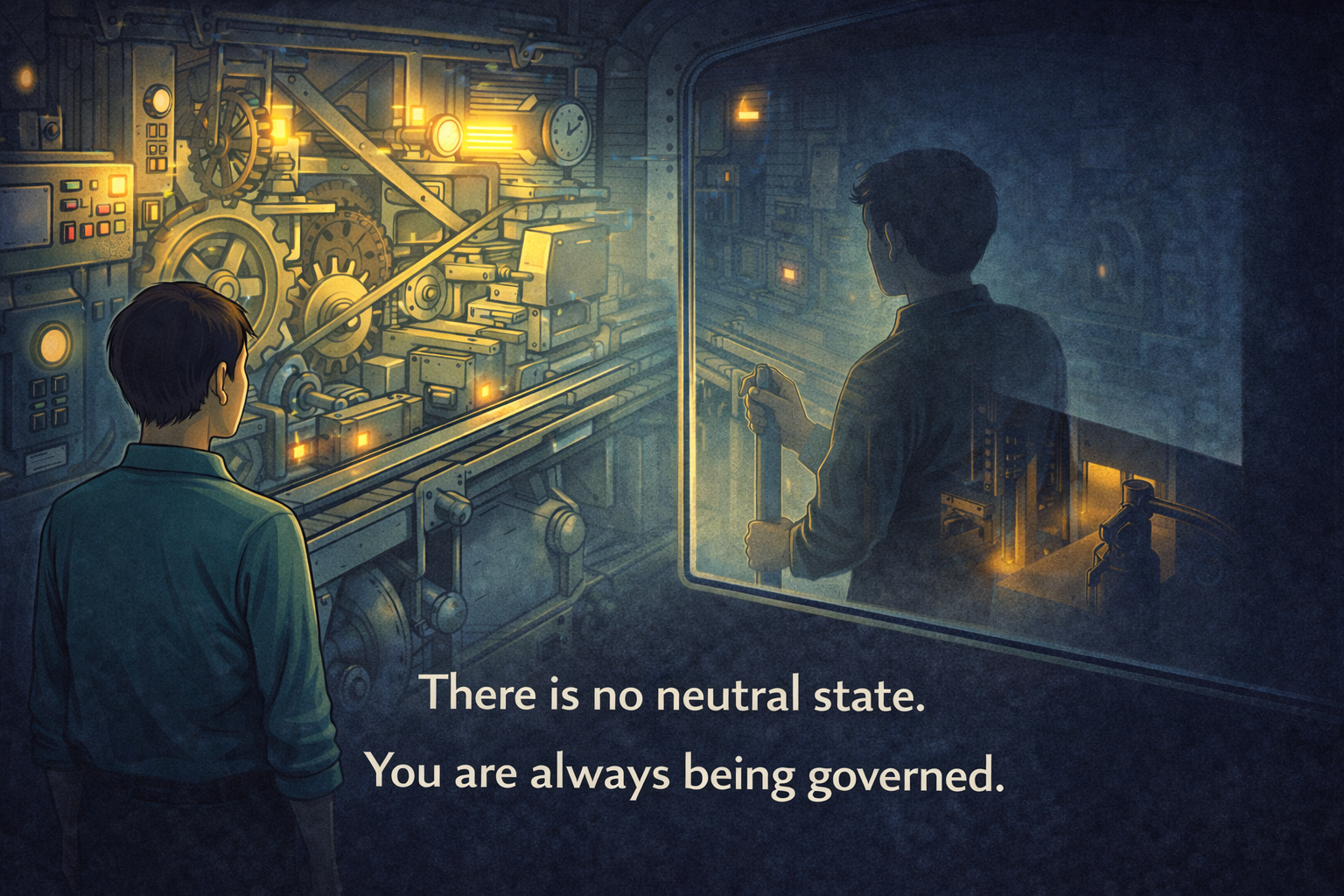
Do you lead consciously?
Under pressure, fear leads.
Under uncertainty, habit leads.
Under complexity, efficiency leads.
Under emotional risk, protection leads.
This happens regardless of how self-aware you are.
Regardless of how successful you’ve been.
Regardless of how much work you’ve done on yourself.
Shortcuts
When I started teaching on Maven.com, the team sent me an email before my class suggesting I speak faster because “people usually listen to podcasts or audio books at 1.5x or 2x anyway.” That email gave me pause. Does listening to a book at 2x speed really help you learn twice as fast or enjoy it twice as much? Of course not. And yet we keep trying to speed things up.
That push to accelerate everything—from how fast we speak to how quickly we fix our problems—reveals a deeper issue: we’re waiting too long to begin the work that truly matters. By the time we finally start, we’re already desperate for results. Instead of methodically preparing, we rush to apply “hacks” or short-term fixes because we feel urgent pain.
Too Many Choices and Too Little Clarity
It’s not because I don’t know how to add joy, but because I realized that whatever general tips I share may not resonate deeply. This led me to a sudden realization: at a certain point in our lives, and depending on our level of maturity, generic advice just doesn’t suffice anymore. These days, it’s easy to get overwhelmed with general advice—“Stay positive,” “Work hard,” “Don’t give up,” “Be brave.” The list goes on. But the real issue that creates an inner void, a sense of conflict within ourselves, isn’t the lack of advice. It’s the lack of alignment (if you haven’t yet, see my blog from last week).
Why Most Transformations Fail: The Hidden Battle of Your Environment
We’ve all felt it—that fire when we decide this is it. We’re done with the old way of doing things. We’re making a change.
For the first few weeks, we’re unstoppable. Motivation is high. Every morning feels like a fresh start.
Then, something shifts.
Not overnight, but gradually.
The fire dims. The certainty wavers. The change that felt so right just a few weeks ago starts to feel… distant.
And before we know it, we’re back where we started.
You’re Growing—Even When You Can’t See It
When my daughter turned one, she had gained 12.19 lbs and grown 13.83 inches taller.
Every day, I watched her transform—taking her first wobbly steps, babbling her first words, learning new things faster than I could keep up.
Her growth was constant. Her progress was visible.
And it was mesmerizing to witness.
Meanwhile, her older brothers grew about 2.2 inches that year—less dramatic, but still noticeable when we marked their height on the wall.
It reminded me of something universal:
As we grow older, growth becomes less obvious.
When you’re a child, growth is easy to see. It’s measured in pounds, inches, first words, and new skills.
But as adults? Growth isn’t so obvious.
No one marks your height on the wall anymore.
The Goal is Not to Bounce Back, It is to Evolve
When my colleague asked me how long it took to bounce back, I gave them an answer.
But the real truth?
I never bounced back.
What I Learned After Leaving My Job (You Don’t Have to Leave to Learn This)
I had a great boss. The company was thriving. I’d even been promoted from contractor to full-time based on the strength of my work—a moment I’d once dreamed of.
But instead of feeling like I’d made it, I felt like someone had slowly turned off the lights in my mind.
Leadership vs. Management: What's the difference?
Not long ago, someone told me, “I don’t think I have to explain myself here. I’ve earned my position.” They had just been promoted to a more senior level.
At first, I paused. Was this confidence or something else? The more I thought about it, the more it became clear: this wasn’t leadership. It was positional authority in action—a reliance on title rather than influence.
Big Plans Start with Small Steps
Big goals often fail because they overwhelm us before we even begin. Think about it: your brain craves reward and progress. Setting the bar too high from the start can feel overwhelming—like trying to leap a mountain before you've built the skills to climb it. The key is to aim high, but break it into smaller, achievable steps that set you up for success.
The Power of Gratitude
I grew up in a third-world country where survival was the priority. Every day, we worried about making ends meet. Reflection was a luxury, and gratitude wasn’t something we expressed or practiced—it was just assumed. We didn’t have the time or space to count our blessings.
Years later, after escaping that hardship, I found myself with an office job and the stability I had long hoped for. Life still had its challenges, but nothing as dire as what I faced growing up. That’s when I began to understand what practicing gratitude could mean.
How to speak with more conviction
Big goals often fail because they overwhelm us before we even begin. Think about it: your brain craves reward and progress. Setting the bar too high from the start can feel overwhelming—like trying to leap a mountain before you've built the skills to climb it. The key is to aim high, but break it into smaller, achievable steps that set you up for success.